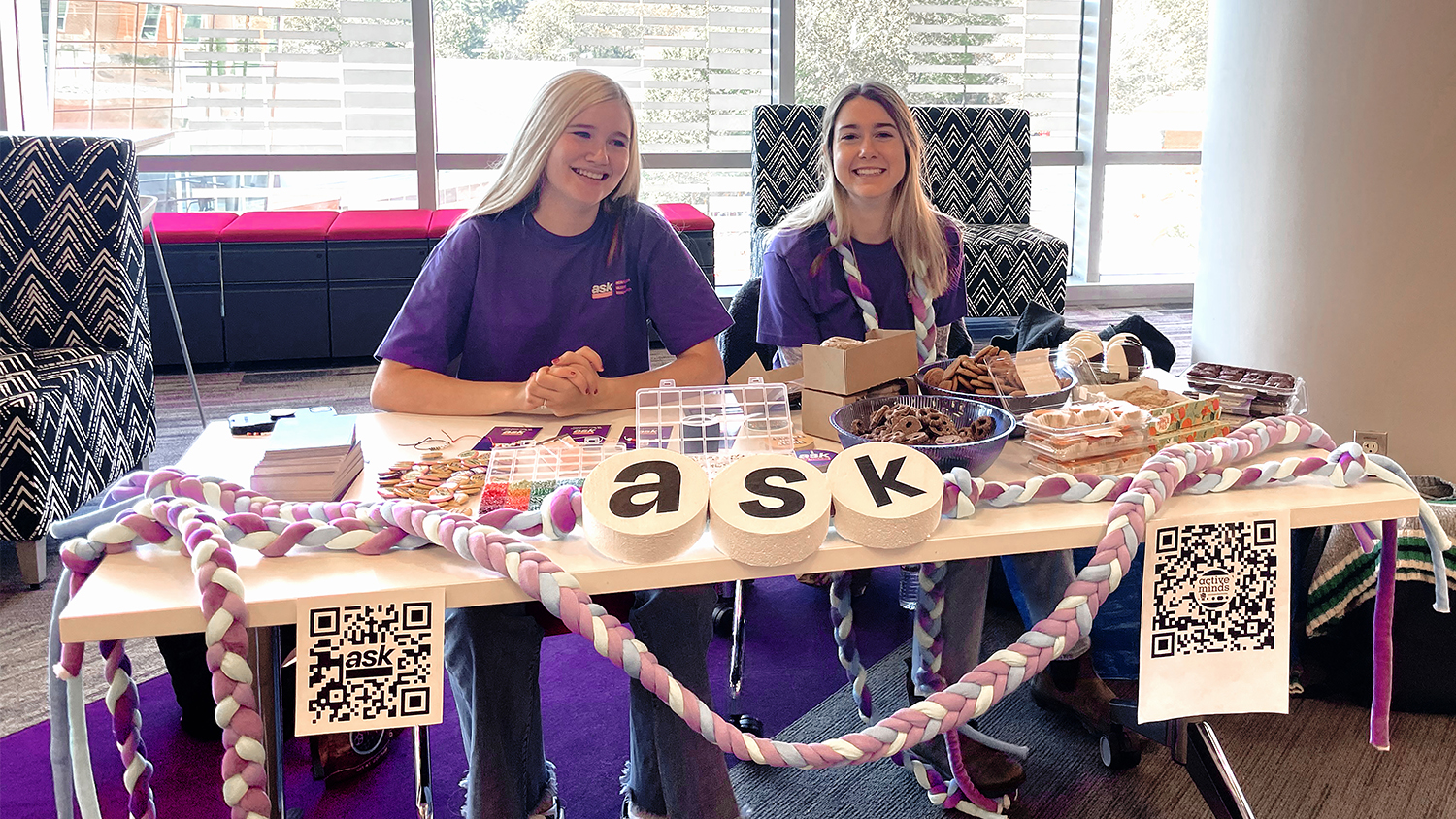How a Recent CBE Grad Left a Lasting Impact on Engineering Students and Their Mental Health

This is a modified version of an article was originally written by Engineering Communications for the Spring/Summer 2024 issue of the NC State Engineering alumni magazine.
Sav Powers knew she wanted to do something to help her fellow engineering students with their mental health. She just didn’t know what.
Powers, who recently graduated with a B.S. in chemical engineering, reached out to Lisa Bullard, Alumni Distinguished Undergraduate Professor and director of undergraduate studies in the Department of Chemical and Biomolecular Engineering, to ask for her advice. Bullard encouraged Powers to connect with her fellow students.
“So I thought, let me start in chemical engineering,” Powers said. “I asked if she could send out an email for me, asking if students wanted to be involved in a chemical engineering mental health advisory board, and so she sent us an email.”
When Powers was flooded with responses wanting to help, her plans expanded to encompass the entire College of Engineering (COE).
“I wanted to make a difference on campus in my last year because I know that there’s something that we can do as students,” she said. “There’s something that we can do to bring some hope to campus.”
She reached out to the COE Office for Diversity, Equity and Inclusion for advice and met with Angelitha Daniel, the College’s assistant dean for diversity, equity and inclusion. Daniel told her about Active Minds, a national organization founded by Alison Malmon, who created the group as a junior at the University of Pennsylvania in 2003 following the death of her brother by suicide.
Shortly after, one of Powers’ professors recommended she join up with Abigail Wucherer, who graduated in spring 2024 with a B.S. in mechanical engineering. Together, they created an Active Minds chapter on campus in fall 2023.
The Active Minds parent organization, headquartered in Washington, D.C., now has 1,000 chapters across campuses and communities in the U.S. They work with millions each year through awareness campaigns, events, advocacy, outreach and more.
We’re trying to change the conversation about mental health on campus and create opportunities for us to connect students and faculty members to the resources that are present…” – Abigail Wucherer
As an official chapter, Active Minds leaders at NC State University are responsible for submitting a chapter report each quarter. In return, the national organization shares resources such as stickers, pins and bracelets to give out. They have also been in communication with the Active Minds chapter at the University of North Carolina at Chapel Hill.
Together with Daniel, who is their faculty advisor, Powers and Wucherer organized a campaign in classrooms, during which they shared mental health resources with professors. They worked with Jim Pfaendtner, Louis Martin-Vega Dean of Engineering, to share a video about his mental health journey during Stress Less Week in February. A big part of their work is making students aware of the resources available, such as the embedded counselors.
Powers and Wucherer hope the organization will live on beyond their time at NC State. Last year, they had about 50 students in the club.
“We are currently working on future leadership,” Powers said. “We’ve been sending out emails and we have some students who would like to be in future leadership. We have identified several new leaders who we’re trying to train and then also we’re just open to looking for new leaders, anyone who wants to join and be a part of Active Minds.”
- Categories: